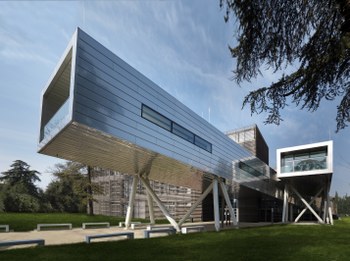
On December 3rd, at the Teaching Hub of the Forlì Campus of the University of Bologna was held the International cooperation and the evolving shapes of global governance: Peace, development and humanitarian assistance Conference.
In the Plenary panels, dedicated to the theme of synergies (and dysfunctionality) of the cooperation between the different actors in the three areas of policy development, humanitarian action and security, academic and policy experts have participated (London School of Economics, SAIS - The Johns Hopkins University, IAI - Istituto Affari Internazionali, Scuola Superiore S.Anna Pisa, University of Sussex, University of Bologna), together with officials of national and international, governmental and non-governmental organizations (EU, NATO, World Bank Group, UNHCR, AICS, REACH, FORSEA, among others).
The Conference has been organized by the Department of Political and Social Sciences of the University of Bologna (DSPS), under the aegis of the Vice President for International Relations, Prof. Alessandra Scagliarini, in collaboration with Campus Forlì and Punto Europa Forlì-Jean Monnet Center of Excellence, with the support of the Delegate for the internationalization of the DSPS Prof. Riccardo Prandini and under the scientific responsibility of Prof. Eugenia Baroncelli.
The event had a triple objective:
The initiative brought together a network of experts (academics and officials), to deepen the theoretical and policy reflection on the link between humanitarian actions, development promotion and security stabilization (Humanitarian Development Peace - HDP Nexus). The aim is to shorten the gap between the academic world and the world of policies around this issue, through the study of synergies between actions in these three areas, in particular those that can be achieved through cooperation between a plurality of actors ( national development agencies, international and regional, governmental and non-governmental organizations, academic institutions), and the analysis of the criticalities that these actors encounter in contexts of high fragility and conflictuality, represents a strategic cornerstone of the Conference and of the project connected to it .
The Conference's Scientific Committee, composed by Professors Eugenia Baroncelli, Antonio Fiori and Stefano Bianchini, explicitly intended to give the initiative a multi-regional focus, articulating the work in Panels related to HDP nexus in the MENA areas, sub-Saharan Africa, the Balkans and Asia, and favoring the deepening of the analysis of these issues in a global perspective. Through the sharing of experiences of high profile practitioners and activists working in the field, the Conference wants to draw attention to the 'blind spots' that characterize the HDP nexus, mobilizing the energies of the network of participants for the elaboration of future proposals, in the areas of research and the third mission.
The publication of the Conference Proceedings and the preparation of editorial and research proposals relating to the third mission are planned, which will maximize the future impact of the network's work and the positive effects for the DSPS and the University. Particular emphasis is given to the issue of delegated cooperation and the role of trust funds in joint development finance programs, among others; to innovations in the management and prevention of the fragility and conflict of developing partners in high-risk areas; stabilization policies in the field of security and securitization of development and humanitarian actions; partnerships between national, regional and international actors in the definition of migration policies and humanitarian actions, including humanitarian corridors and refugee inclusion policies - also through dedicated educational and psychological support programs.